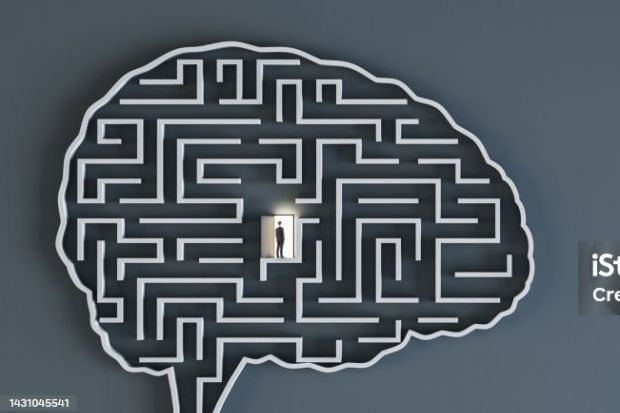The mismatch between places and applicants has historically required students who want to study psychology in Germany to score very highly in the school-leaving Abitur exam.
According to the German Federal Statistical Office, 39,788 interested students applied for a psychology bachelor’s degree in the winter semester of 2021-22, but only 5,554 were admitted.
The problem with the Abitur is that it inevitably favours richer students who went to better schools and doesn’t necessarily identify those with the most potential to thrive at university and to become good psychologists.
In response to such concerns, a new aptitude test, known as the Ba-Psy-DGPs, has been devised by the German Society for Psychology (DGPS). For €100 (£87), would-be bachelor’s students are, from this year, able to take the optional three-hour multiple-choice test of various competencies that are relevant to the study of psychology, including mathematics, textual understanding, logical thinking and understanding of psychology itself, in both German and English.
However, Germans are divided over whether the test will really boost the fairness of the admission process.
For starters, it is up to individual universities whether they offer the Ba-Psy-DGPs at all. Many have pledged to do so, and to take performance in it seriously into account in admission decisions. For those with less than stellar Abitur scores, “the test can massively improve the chances of getting a place at university”, the now retired psychology professor Gerhard Stemmler, who is overseeing the test, told Der Spiegel magazine. He argued that, at participating universities, the test result would carry genuine weight alongside Abitur grades.
The extent of that weight, however, depends on individual universities’ specific regulations. Each test-taker receives a certificate that shows, among other things, their own percentile rank compared with all the other candidates in the current test year. Someone with a percentile rank of 95, therefore, knows that only 5 per cent of the participants scored better. However, how that rank actually factors into admission decisions depends both on levels of competition for the specific programme they are applying for and universities’ own decisions about how to weight Ba-Psy-DGPs scores. Applicants to the University of Heidelberg, for example, can receive up to 60 admission points: 30 for their Abitur grade, 20 for their aptitude test score, 10 for other achievements, such as voluntary service to the community.
Still, a pilot run last year in the state of Baden-Württemberg yielded promising results. Stemmler told Der Spiegel that he knew of someone with a mediocre Abitur average who was nevertheless able to get a study place by taking the aptitude test. He said he also knew of applicants with high Abitur scores who did very badly on the test and did not get places.
Moreover, studies of an established aptitude test for acceptance into German medical schools have shown that it can reliably predict students’ success on courses. But whether it identifies people who will proceed to become good doctors, of course, is another matter, and this is surely crucial – the Ba-Psy-DGPs will have the same issue regarding the profession of psychology.
Furthermore, it is just as possible to cram for an aptitude test as it is to cram for the Abitur, so scores might be just as distorted by the effect of prior hard study – some or all of which could be with a private tutor.
Students themselves are also unconvinced that the aptitude test levels the playing field for students from poorer backgrounds. Their biggest criticism is that the €100 fee is too high – particularly because in practice, many argue, the test is not really optional because those who do not do it will be at a disadvantage if it really can boost their likelihood of admission. In effect, they will only get one bite of the cherry (the Abitur), rather than two.
Others criticise the lack of consistency in how the test will be used in admission processes. This will oblige prospective students to check universities’ websites to learn what criteria will apply and how.
If the aptitude test proves to both boost admissions equity and reliably identify good psychologists, it might be possible to sweep away the confusion and base admissions entirely on its outcomes – with the cost of running the test being taken on by universities themselves. The worry must be, though, that the hybrid system’s cost and complexity simply makes existing inequities worse.
Brian Bloch is a journalist, academic editor and lecturer in English for academic research at the University of Münster.
Register to continue
Why register?
- Registration is free and only takes a moment
- Once registered, you can read 3 articles a month
- Sign up for our newsletter
Subscribe
Or subscribe for unlimited access to:
- Unlimited access to news, views, insights & reviews
- Digital editions
- Digital access to THE’s university and college rankings analysis
Already registered or a current subscriber? Login








